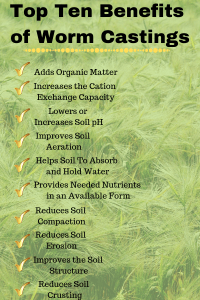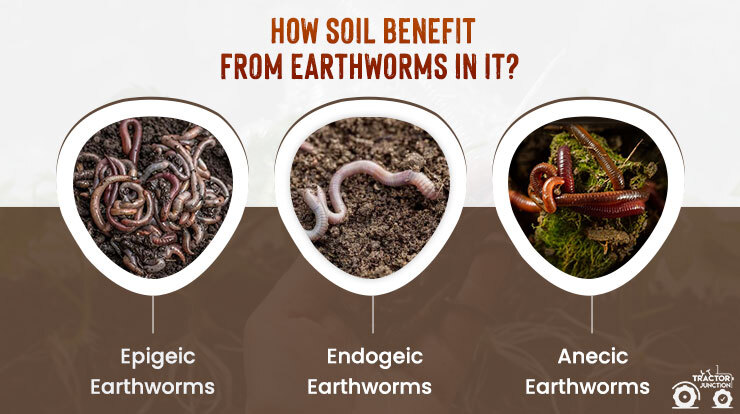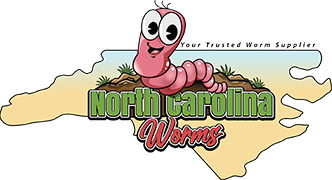Unknown Facts About North Carolina Worms
Table of ContentsThe 10-Second Trick For North Carolina WormsSome Ideas on North Carolina Worms You Need To KnowNorth Carolina Worms - TruthsSome Of North Carolina WormsThe Main Principles Of North Carolina Worms The 10-Second Trick For North Carolina WormsThe Facts About North Carolina Worms Revealed
Additionally, if there are a lot of earthworms in one area, they can actually eat all the raw material in the soil, which might leave plants without adequate to feed off of. Earthworms are a very appealing source of food to pets which can bring in other pests to the yard, such as moles and voles.
As always, it is necessary to seek advice from a horticulture professional prior to including any kind of brand-new animals to your garden. If you require suggestions or support with good and bad garden worms in your backyard, connect with the ISA-Certified Arborists at TreeNewal and enjoy tailored tree treatment guidance. We're a little various than the ordinary tree services business.
North Carolina Worms - An Overview

One Reality regarding worm spreadings; there is no such thing as 100% worm castings. The next time you see a case of 100% worm spreadings, you should run the various other way.
Dr. Aroncon is a regular speaker at the annual Vermiculture Seminar in Raleigh, North Carolina (Lake Rhodhiss Bait).
9 Simple Techniques For North Carolina Worms
Clear as mudI recognize. Allow's have a look at a number of examples that concern our discussion. Nature can take many years to compost or biodegrade raw material. The procedure of thermophilic composting can speed this process up to a matter of days or weeks. This is your outdoor compost heap in simple terms.

The bacteria require dampness, oxygen, and a food resource to flourish. When transforming no much longer creates warm with ample wetness and oxygen, the thermophilic microorganisms have mainly died-off and the mesophilic bacteria (70-100 F.) take control of the disintegration process. Your compost is becoming extra steady. The thermophilic heating actually accomplishes many good things.
This is a little simplified but mainly exact. Worm composting occurs in the mesophilic range (70-90 F.) The worm bedding is a combination of various carbon materials. The worm container temperature is managed by adding just percentages of nitrogen materials at once. Often the nitrogen products are even pre-composted (thermophilic) before introducing to a worm container.
The Ultimate Guide To North Carolina Worms
The communication of worms and microbes is identical to recognizing worm castings. The result is Worm castings producers control the conditions in their worm's environment to make the worm composting procedure work.
Some examples: Bedding temperature levels, moisture degrees, kind of composting worms, kinds of bedding products, different food resources, and size of time before castings gather all have an effect on the quality of spreadings (or lack thereof). Without a doubt, these "controlled conditions" have the biggest influence on the total quality of the worm spreadings.
Certain crops are known to expand better with different kinds of castings. This is leading-edge scientific research yet will become the standard as more plant-specific research study is done. This all arise from controlling the conditions that the earthworms are raised in. The benefits of worm spreadings get to far past helping our plants grow.
This consists of living organic matter, dead raw material, and extremely dead natural matter (humus). Allow me toss out a couple of terms and see if any one of these are familiar to you: deteriorated, farmed-out, disintegration, nitrogen run-off, algae blossoms in lakes, wind erosion, silt, chemicals, chemical fertilizers, irrigation, water contamination, fish kills, bees passing away, reduced insect populations, mineral exhaustion, much less nutrient-dense foods, drought conditions, loss of topsoil, compaction, and I can take place forever.
The Best Strategy To Use For North Carolina Worms
Perhaps it is time for an adjustment? To comprehend the significance of Healthy dirt, allow's examine what Un-healthy dirts give the table. Well, to startthe whole list of terms over. Right here are a couple of even more BIG ones. Food Instability, destitution, climate modification, and unsustainable advancement. Undesirable dirt is a significant factor to environment adjustment.
This worsens the issue. Healthy and balanced soil in fact withdraws carbon and alleviates environment change. Some researchers think that carbon sequestration in dirt might actually quit environment change. There is frustrating evidence to support the requirement for healthy and balanced dirt. So, let's chat regarding the benefits of worm spreadings and how they can assist.
This enhances the populace of bacteria in the soil. The CEC is a measurement of your dirts fertility ability. The greater your CECthe more productive your dirt is or can come to be. Worm castings are near neutral pH. They can make acidic soils more neutral or alkaline dirts more acidic. Spreadings are granular and aid to make oygenation room in the soil.
Worm spreadings hold water like a sponge. Worm spreadings aid to form "soil aggregates" which minimize compaction troubles in your dirt.
The smart Trick of North Carolina Worms That Nobody is Talking About
Casts aid to create soil accumulations. Worm castings applications in addition to organic garden compost products can boost sandy or clay soils tremendously. Loose friable dirt that maintains water well is a lot less vulnerable to crusting. No discussion of the benefits of worm spreadings is complete without addressing the NPK classification. NPK N = Nitrogen P = Phosphorous K = Potassium The NPK designation is an artificial or chemical fertilizer dimension.
Right here is the issue. A lot of worm castings will certainly examine 1-0-0 on an NPK examination. Chemical fertilizers are not in a plant-available type.
They additionally do not supply numerous things that healthy and balanced plants require to expand. (plant hormones, humic acids, etc) Nevertheless, worm spreadings function entirely differently than chemical fertilizers.
You add worm spreadings to your dirt and the lifecycle of the bacteria produce nitrogen, phosphorous, and potassium for your plants. They likewise produce plant hormonal agents, humic acids, and other things. They create this in a plant-available kind, so your plant does not call for that much. It is a two-way cooperative relationship with your plants and the dirt.
Excitement About North Carolina Worms
This lab test outcome is probably trivial if you are a gardener. If you are a grower of a particular plant (ie.tomatoes, marijuana, and so on) and know specific kinds of worm spreadings function well for you, it is crucial info. My pointer is to collaborate with a worm spreadings producer and ask for the laboratory examination outcomes.